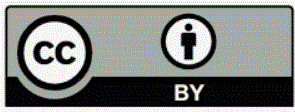
Journal of Salutogenic Architecture
Publication decisions
The editor of a peer-reviewed Journal of Salutogenic Architecture is responsible for determining which articles should be published in the journal. Such decisions must always be driven by the validation of the work in question and its value to academics and readers. The editor may be led by the editorial board's policies and bound by the legal requirements in effect at the time addressing libel, copyright infringement, and plagiarism. In reaching this judgment, the editor may consult with other editors or reviewers.
Fair play
Without taking the authors' race, gender, sexual orientation, religion, ethnicity, citizenship, or political philosophies into consideration, an editor should assess submissions for their intellectual value.
Secrecy
The editor and any editorial staff must not reveal any information about a submitted article to anybody other than the corresponding author, reviewers, potential reviewers, other editorial consultants, or the publisher, as appropriate.
Disclosure of Interests and Potential Conflicts
Without the author's express written permission, unpublished items disclosed in a submitted paper cannot be used in an editor's personal research. Confidential information or ideas received through peer review must be kept private and not exploited for personal gain. The editors should avoid asking a co-editor, associate editor, or another member of the editorial board to review and consider manuscripts in which they have competitive, collaborative, or other relationships or connections with any of the authors, authorities, or institutions associated with the studies.
Editors should ask all contributors to identify any relevant competing interests and should publish corrections if competing interests are discovered after publication. Other relevant actions, such as the publication of a retraction or expression of concern, should be taken if necessary.
Participation and cooperation in investigations
If an editor receives ethical objections about a submitted manuscript or published work, he or she should take reasonable responsive measures in collaboration with the publisher (or society).
In general, such measures will include contacting the author of the manuscript or paper and giving proper consideration to the respective complaint or claims made, but may also involve additional communications to the related institutions and research authorities, and, if the complaint is affirmed, the publication of a correction, retraction, expression of concern, or other note, as may be pertinent. Every reported instance of unethical publishing activity must be investigated, even if it is found years after the fact.
Reviewer's Responsibilities
4.6.1 Participation in editorial decisions
Peer review helps the editor make editorial judgments, and editorial discussions with the author can help the author improve the manuscript. Peer review is an important part of formal scholarly communication and is crucial to the scientific method.
Confidentiality, promptness, and availability
Any referee who believes they are unqualified to examine the research described in a manuscript or understands that timely review is impossible should contact the editor and withdraw from the review process. Furthermore, all manuscripts submitted for evaluation must be handled as confidential documents. They should not be shown or discussed with anybody else unless specifically permitted by the editor.
Objectivity Standards
Reviews must be carried out objectively. Individual criticism of the author is not appropriate. Referees should convey their opinions clearly and provide supporting evidence.
Sources Acknowledgment
Reviewers should find relevant published material that the authors have not cited. Any claim that an observation, derivation, or argument has previously been reported should be accompanied by a citation. A reviewer should also draw the editor's attention to any significant resemblance or overlap between the article under consideration and any other published paper about which they are personally aware.

Journal of Salutogenic Architecture
This journal is published through an Open Journal System as part of the Public Knowledge Project (PKP).
This journal is licensed under a Creative Commons Attribution 4.0 International (CC BY) license.
